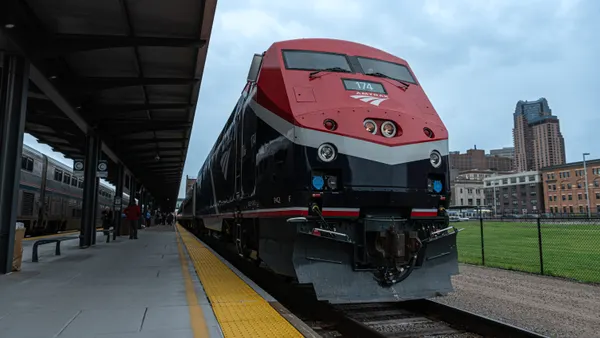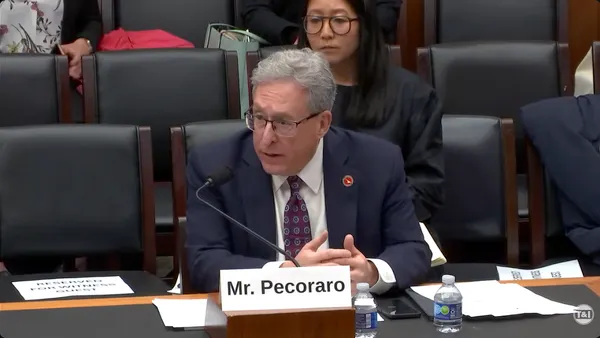Dive Brief:
- Boston's Metropolitan Area Planning Council (MAPC) announced a regional bike-share project for 16 small cities and towns making up Boston's inner suburbs. The project will be one of the largest regional bike-share systems in the country, similar to those being considered near Chicago and Detroit.
- Boston — along with neighboring Brookline, Cambridge and Somerville — already has its own city-based bike-share service, Hubway. While it is unclear who will spearhead this new regional project, or if licenses will be offered to multiple vendors at once, it is likely this new project will include at least one dockless bike option.
- MAPC anticipates soliciting proposals from bike-share businesses in November, and intends to roll out the program by spring.
Dive Insight:
MAPC was instrumental in bringing Hubway to Boston in 2011 and helping with its expansion to three adjacent communities the following year. Now it's helping other nearby communities get their own bike-share system, and it's acting as a role model department for cities looking to expand in a similar way. Suburbs are often untapped markets for city-influenced innovation, and by bringing a regional bike-share to the Boston area, MAPC is exemplifying how connectivity and mobility can be further expanded.
Funding is a perennial issue for advancing community projects. Pooling resources is one approach that allows smaller communities to pursue capital-intensive innovations that they otherwise would struggle to achieve. MAPC says the bike-share system will not cost cities anything, which indicates it will consist entirely of privately-run ventures instead of municipal bike-sharing.
Private bike-share companies prefer to establish a presence in areas where their service is scalable. A small community generally is not viewed as meeting that criteria, but a cluster of small cities — such as the 16-community group of Boston suburbs — could work because it meets bike-share businesses' geographical and infrastructure needs.












